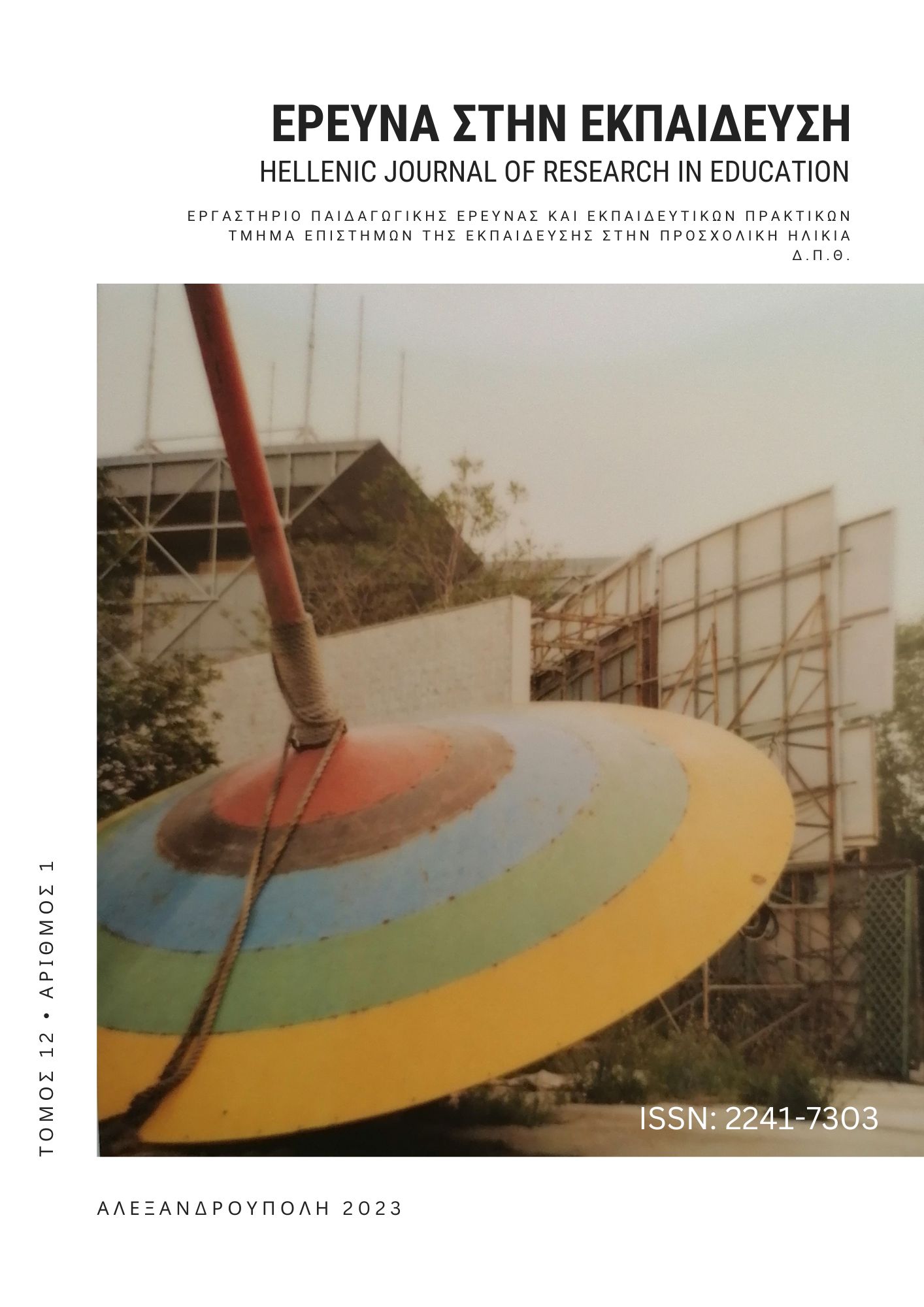H ‘Οδύσσεια’ της παιδαγωγικής και διδακτικής κατάρτισης των εκπαιδευτικών Δευτεροβάθμιας εκπαίδευσης στην Ελλάδα

Περίληψη
O εκπαιδευτικός σήμερα καλείται να ασκεί το παιδαγωγικό και διδακτικό του έργο, έτσι ώστε να επιτυγχάνεται υψηλής ποιότητας εκπαίδευση για όλους τους μαθητές. Ως εκ τούτου η άριστη γνώση του αντικειμένου που διδάσκει δεν αρκεί, προκειμένου να ανταπεξέλθει στο σύνθετο ρόλο που αναλαμβάνει, αλλά είναι αναγκαία η επαρκής παιδαγωγική και διδακτική του κατάρτιση. Ωστόσο, η παιδαγωγική και διδακτική κατάρτιση εκπαιδευτικών Δευτεροβάθμιας εκπαίδευσης, αποτελεί ακόμη ζητούμενο, και όχι μόνο για την ελληνική πραγματικότητα. Σε ό,τι αφορά την ελληνική πραγματικότητα η παιδαγωγική και διδακτική κατάρτιση των εκπαιδευτικών Δευτεροβάθμιας εκπαίδευσης-παρά την 25ετή προσπάθεια διασφάλισης και εδραίωσής της- παρουσιάζει ακόμη πολλές ελλείψεις, αντιφάσεις και εγείρει ερωτήματα και συγκρούσεις. Σκοπός του άρθρου αυτού είναι να σκιαγραφηθούν οι πρακτικές και οι πολιτικές αναφορικά με τη διασφάλιση της παιδαγωγικής και διδακτικής επάρκειας των εκπαιδευτικών Δευτεροβάθμιας εκπαίδευσης μέσα από τη μελέτη αφενός του σχετικού θεσμικού πλαισίου και αφετέρου μέσα από τη μελέτη των προγραμμάτων σπουδών των Τμημάτων των οποίων οι απόφοιτοι έχουν το δικαίωμα να εργαστούν σε σχολεία Δευτεροβάθμιας εκπαίδευσης.
Λεπτομέρειες άρθρου
- Πώς να δημιουργήσετε Αναφορές
-
Λιακοπούλου Μ. (2023). H ‘Οδύσσεια’ της παιδαγωγικής και διδακτικής κατάρτισης των εκπαιδευτικών Δευτεροβάθμιας εκπαίδευσης στην Ελλάδα. Έρευνα στην Εκπαίδευση, 12(1), 200–223. https://doi.org/10.12681/hjre.35538
- Τεύχος
- Τόμ. 12 Αρ. 1 (2023)
- Ενότητα
- Άρθρα

Αυτή η εργασία είναι αδειοδοτημένη υπό το CC Αναφορά Δημιουργού – Μη Εμπορική Χρήση – Παρόμοια Διανομή 4.0.
Τα πνευματικά δικαιώματα των άρθρων του περιοδικού ανήκουν στους συγγραφείς. Τα άρθρα διατίθενται με άδειες Creative Commons CC-BC-SA 4.0


